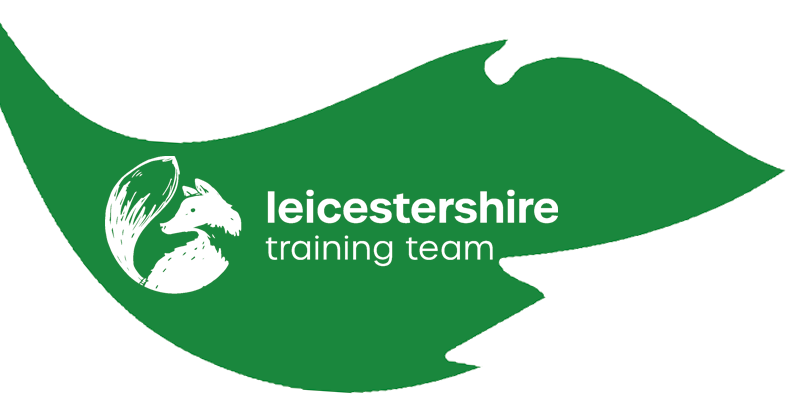Tips On How to Hire Nurses
Posted on 8th April 2024
It can be very difficult to find and hire the right nurse. Whether this is hiring nurses from overseas, or hiring nurses within the UK. Whether this is hiring for a nursing agency, a hospital or a nursing home. This is because nursing is a multi-faceted profession, covering everything from film sets & cruise ships, to schools & universities, to A&E & general wards, to privately hired nurses for care delivered at home.
In this article, we cover what we feel is tips and tricks to hire the best nurses:
Lets get straight to it!
What are the different nursing professions?
There are officially only three types of nurses, although in reality, there are hundreds. The official three are:
Adult/Child Nurse
Mental Health Nurse
Learning Disability Nurse
These three types of nurses are very different, not only because they receive different training at university, or that they have had different experiences during their practice, but because their personalities tend to be very different too.
As a generalisation, adult/child nurses focus very much the physical side of nursing. They are taught and experienced in monitoring clinical observations, wounds, IV drips, catheter outputs, and anything else with a number which can be collected for data. These tend to be the main type of nurse in a hospital or hospice. Regarding their personality, adult/child nurses tend to be more analytical, looking for processes to follow, clear guidance and procedures. Giving them vague instructions will only result in a lot of questions coming your way.
In contrast, generally speaking you have mental health and learning disability nurses. They tend to be much more interested and experienced in managing social, psychological, emotional and behavioural aspects of a patient. They don't get taught about many clinical interventions, so don't be surprised if they aren't experienced or skilled in wound management, syringe drivers or even manual blood pressures. Regarding personality, they tend to be more social and chatty. They will spend a lot of time speaking, observing and guiding people, rather than collecting quantitative information, for them its about qualitative information. Give them a dilemma and there will be no doubt a plethora of potential solutions.
What Type Of Nurse Do I Need?
From the above information, you've probably already got a good idea about which type of nurse you need. Generally speaking you'll need an adult nurse for most settings. However if it's a specific setting for mental health, such as rehabilitation, prisons, community psychiatric teams, then mental health nurse is definitely the person you want. This is very much the same for learning disability nurses.
Having said this, what happens if the setting has a mixture of service user needs, like a hospital or a care home? Normally what employers do is hire a mixture of the nursing professions to cover both basis. This allows for both disciplines to mix and get the best from each other.
If you're looking for a more management position to fill with a nurse, employers tend to favour an adult nurse, this is because of the experience in managing numbers and physical conditions. However, mental health nurses definitely have their place within management systems too.
The type of nurse really will depend on what you are wanting to nurse to do, what type of patient they will be supporting. Please be aware that an adult nurse will not necessarily be just as good in an situation. Each nursing job tends to be specialised, whether that's due to the demographic such as young or elderly, due to the condition of the patient such as diabetic or respiratory, or due to the clinical techniques required.
Where Can I Find Nurses To Hire?
There are plenty of places to find nurses and it depends on what type of nurse you want to find too.
If you're looking for newly qualified nurses, speaking to the universities to offer your vacancies is a good place to start.
If you're looking for more experienced nurses, you can do the usual and add jobs on Indeed, Jobpola or any other recruitment job site. You won't find many nurses looking for a job through the local job center or down at the post office notice board. Instead give recruitment agencies a call, most nurses tend to get their jobs through agents.
Some care homes and nursing agencies get nurses through advertising on their own website and have an application form ready to be completed.

What Do Nurses Want?
This is a very important question. You may have a large net in order to advertise to nurses, using recruitment agencies, Indeed, speaking to universities etc, however if what you're offering is not right, you'll get no interaction.
Some of the most common things to think about and include in your job adverts are:
The remuneration; it's a huge thing for nurses. You've no doubt heard about nurses being drastically underpaid. Nurses will move jobs simply to gain more money, and who can blame them? The average wage of a nurse in the UK is £33,000. Nurses within the NHS start at band 5 on £25,000 per year. Most NHS nurses work they way up to band 6, around £32,000 per year. This equates to approximately £12.50ph to £16ph depending on band level and years of experience. This, however is different for private organisations. In nursing homes, the pay tends to be approximately £16ph to £18ph. This is because the NHS offer bonuses and a pension which private organisations don't tend to try to compete with. Nurses know they are in demand and so know what they are really worth.
The second biggest thing nurses look for is support. Support from a structured management system, support with making clinical decisions, support with their revalidation and support with carrying out their daily work. This is a lot of support, but this is because the nurse tends to be the one who gets blamed when things go wrong. They are also the main advocate of their patient, be the one who organises and delivers the care for the patient and be the one who sees the patient the most in a clinical capacity. Despite doing all this for each patient, often they are also in-charge of managing families, staffing levels, staffing skill mixes and ordering medications and clinical products. Oh, and don't forget the ones who write the care plans and risk assessments and review them monthly! Nurses don't tend to have one or two patients either, the tend to have 6 - 12 in a hospital, but 12 - 20+ in a nursing home. As you can see, needing support is a big things for them. Having senior cares, a clinical manager and colleagues to speak to is very welcome. A simple revalidation package is also easy to add to your organisation but well received by nurses.
The third biggest thing nurses look for is the type of service user they will be supporting. Mental health nurses tend to get nervous around clinical organisations and adult nurses tend to avoid service users needing support with their mental health. It doesn't align with their experience or what they've been taught, its very much a feeling of being a fish out of water. This can make it more difficult to hire the right nurse for your organisation. As mentioned above, different nurses, even within the same field, like adult nursing, tend to have vastly different experiences and skills. So having a training system in place for the nurse is crucial. By this we mean not empty promises of training or just sitting in front of a screen clicking 'next' on the e-learning platform. Many thousands of nurses have been promised training to help them support their patients, but have been let down, over and over again. Being able to prove your training system, your training opportunities is very important. Read the tips below for more information.
Top Tips For Hiring A Nurse
It's very important to ensure you sell yourself to the nurse. The nurse has lots of job opportunities and people begging them to go and join their organisation. In the UK its estimated there is a 50,000 nurse shortage, and they know it. It's not just a one-way street where the nurse has to prove themselves to you. You need to prove to them your organisation is where they want to work.
We suggest doing the following:
Have a nurse involved in the interview, not just for double checking the skill and knowledge base of the interviewee, but to sell the job from a nursing perspective. Often the nurse sitting in the interview is just their to check the candidates not misleading the interviewer. This is a big missed opportunity. The nurse should be saying to the candidate, what it's like to be a nurse within your organisation. What benefits directly support the nurse, how the upskilling and training systems work, how your revalidation package has made it super easy and stress free to revalidate. This will help you hire a nurse.
Ensure your remuneration package is competitive. There are some companies who are breaking away from the norm of pay per hour or a fixed salary, and instead offering bonus packages for the home's compliance, offering staff afternoon tea vouchers for having no pressures for that quarter or no medication errors this quarter. Part of recruitment and retention is demonstrating you understand the pressure of their job and you are appreciative of their work. Being appreciated is one of the biggest reasons for people changing their job.
Offer flexibility within your organisation. This can come in many forms, from offering a promotion ladder for them to climb, highlighting that you have different units, wards or areas where they can work. Most care homes or organisations split their building into specific areas for different teams. If these areas have different clientele, then it means the nurse has options of where to work. Ideally the staff who enjoy a specific location the best, work primarily there, it only makes sense.
Explain how you manage your staff to ensure they have support from the care staff and what the procedure is if someone calls in sick or is absent. Many organisations have no real back up plan, or just one which isn't actioned. Officially they would call the staffing agency for cover, however in practice they aren't allowed. By reassuring the nurse that you have a genuine plan which works, is a great way to help them choice you as their preferred place to work. Happy staff means they stay, when they do you end up with experts in your organisation and a much lower recruitment bill.
One of things the nurse will do during the interview if look for problems, problems regarding the safety of their PIN. Their NMC Pin number is the only way they can continue to legally operate as a nurse in the UK. It's not just about the job, its about their entire career, because once it's gone, they may never be allowed to get it back. Explaining what you do to ensure the patient and staff safety is another great move. Highlighting how you help nurses manage and safeguard their Pin number will most likely be the icing on the cake, after you've done the above. Happy hiring!

We hope this has been useful for you and answered any queries or concerns on hiring nurses.
Free feel to check out our other blogs for more information about a whole range of topics.
Share this post:



